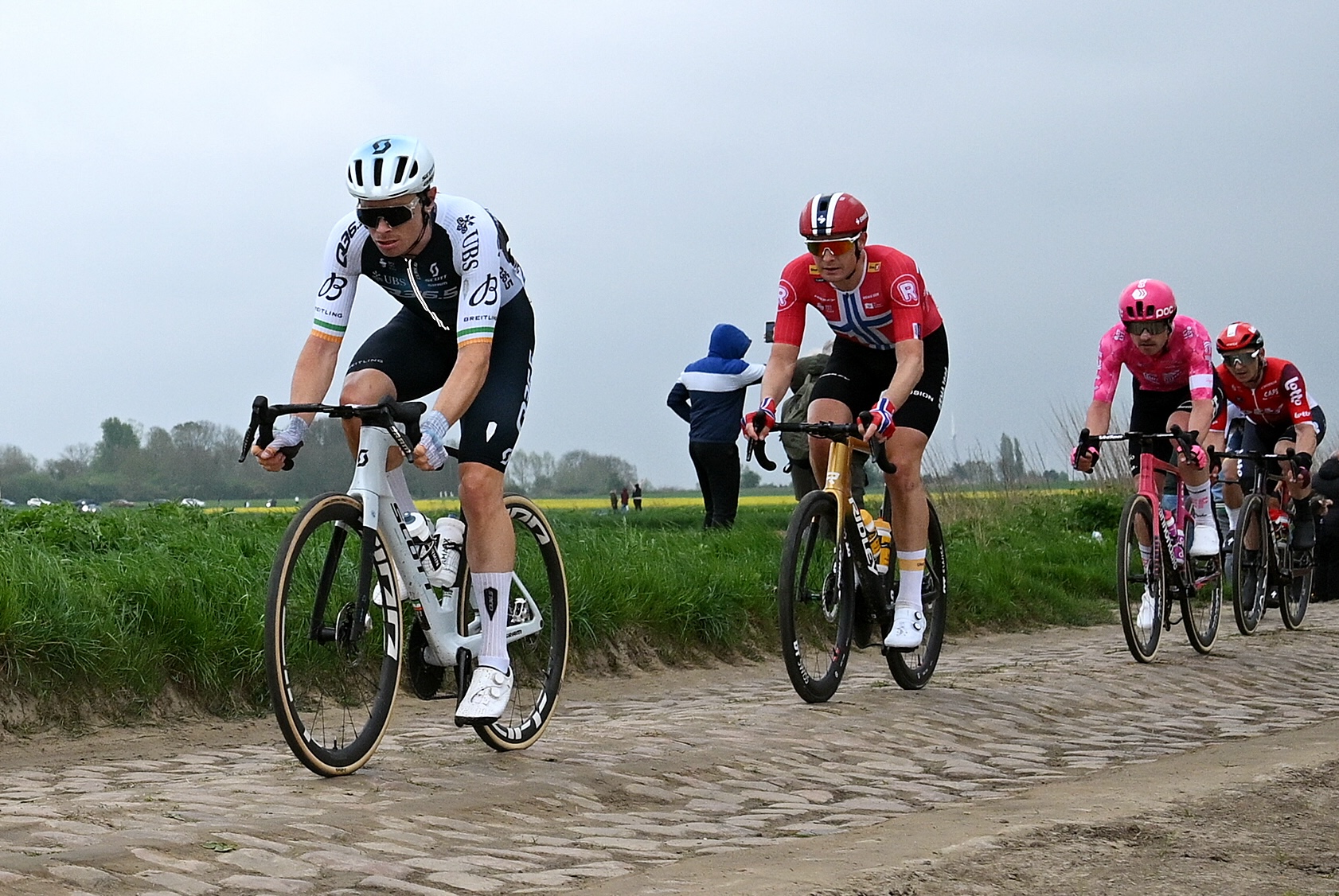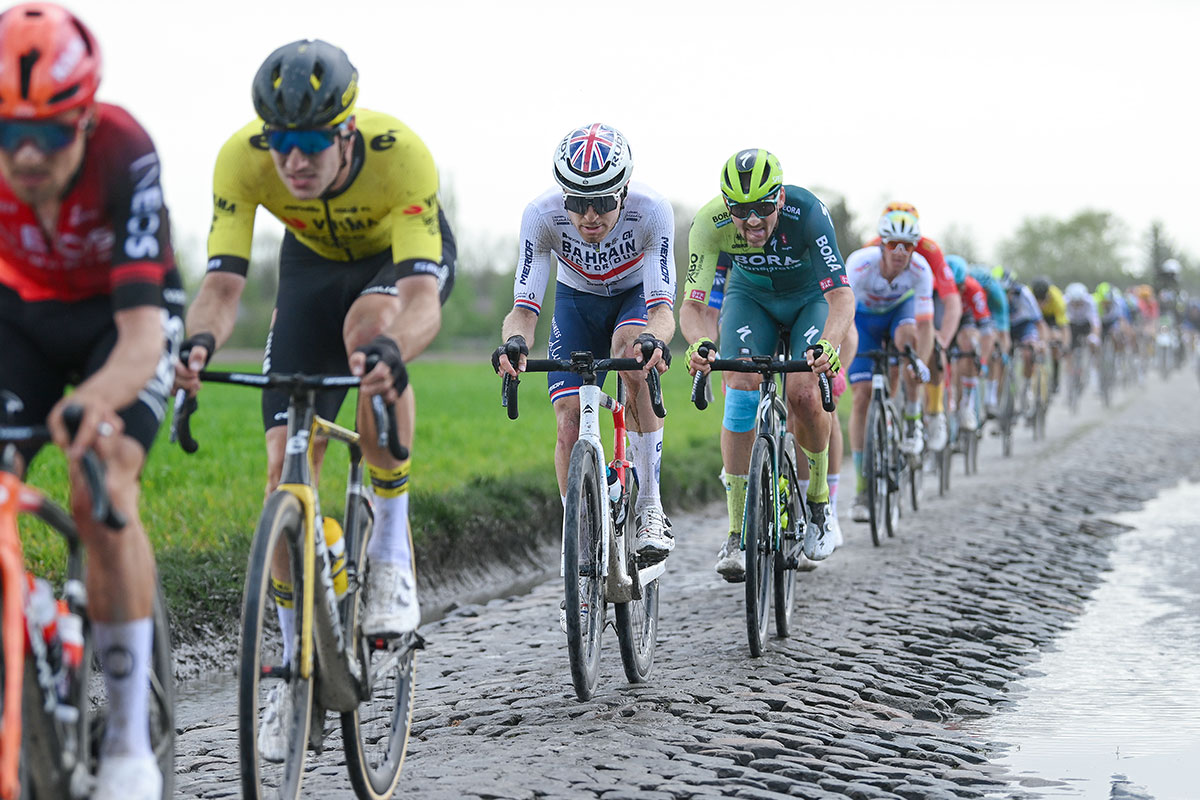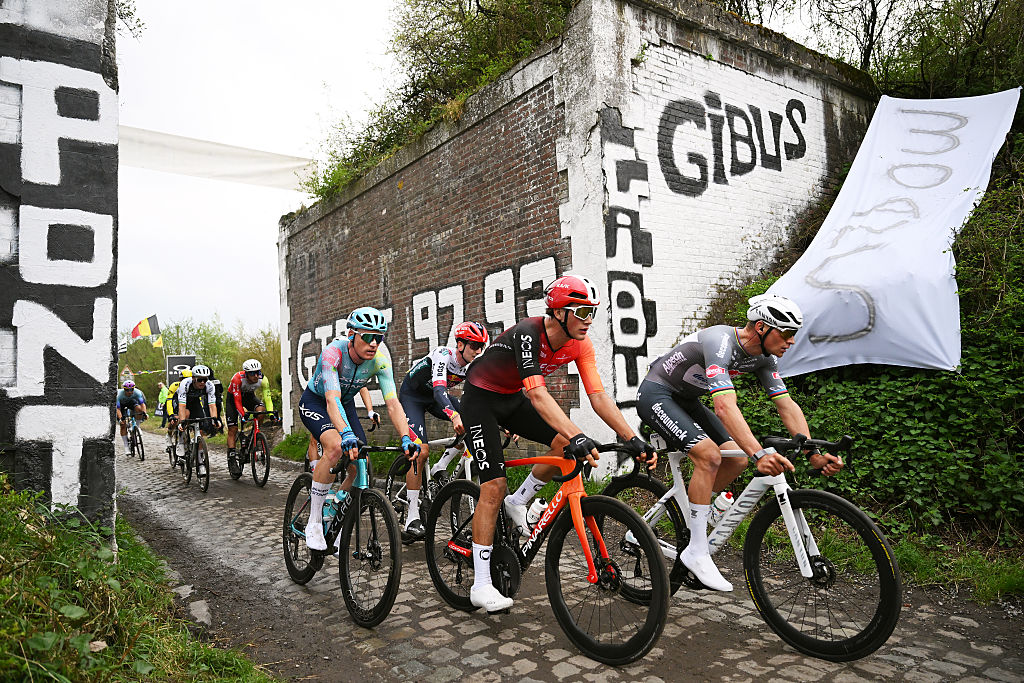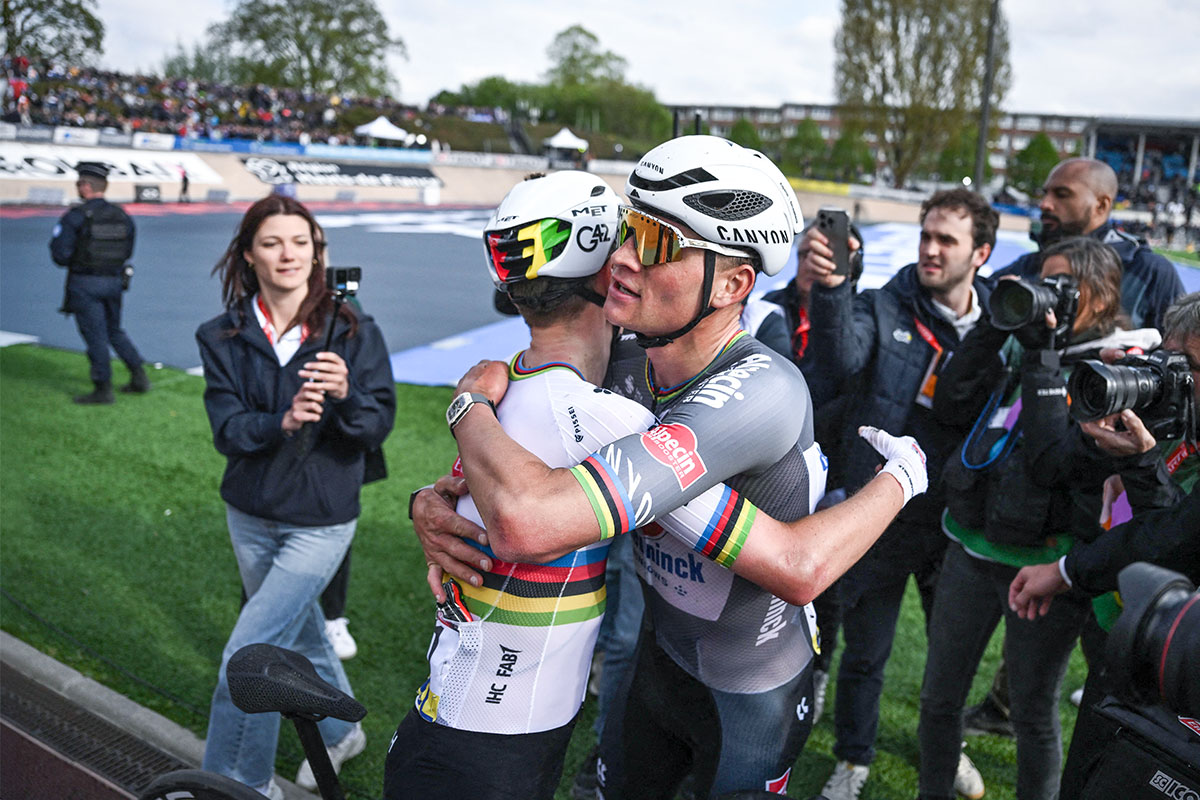Tour de Suisse 2022 route
The eight-day stage race in Switzerland opens with hilly circuit at Lake Zurich and concludes with time trial in Liechtenstein
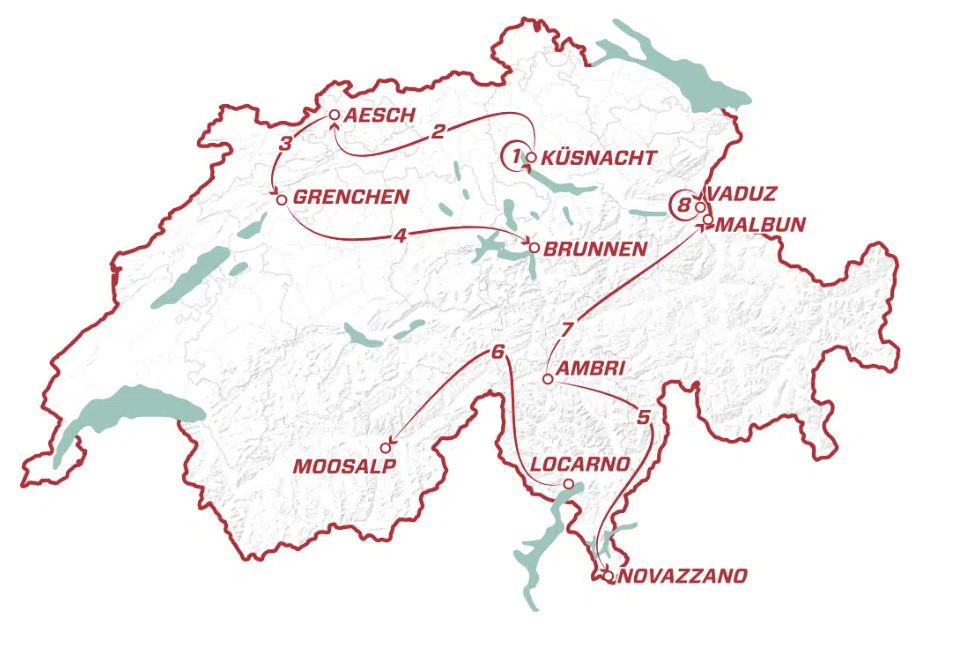
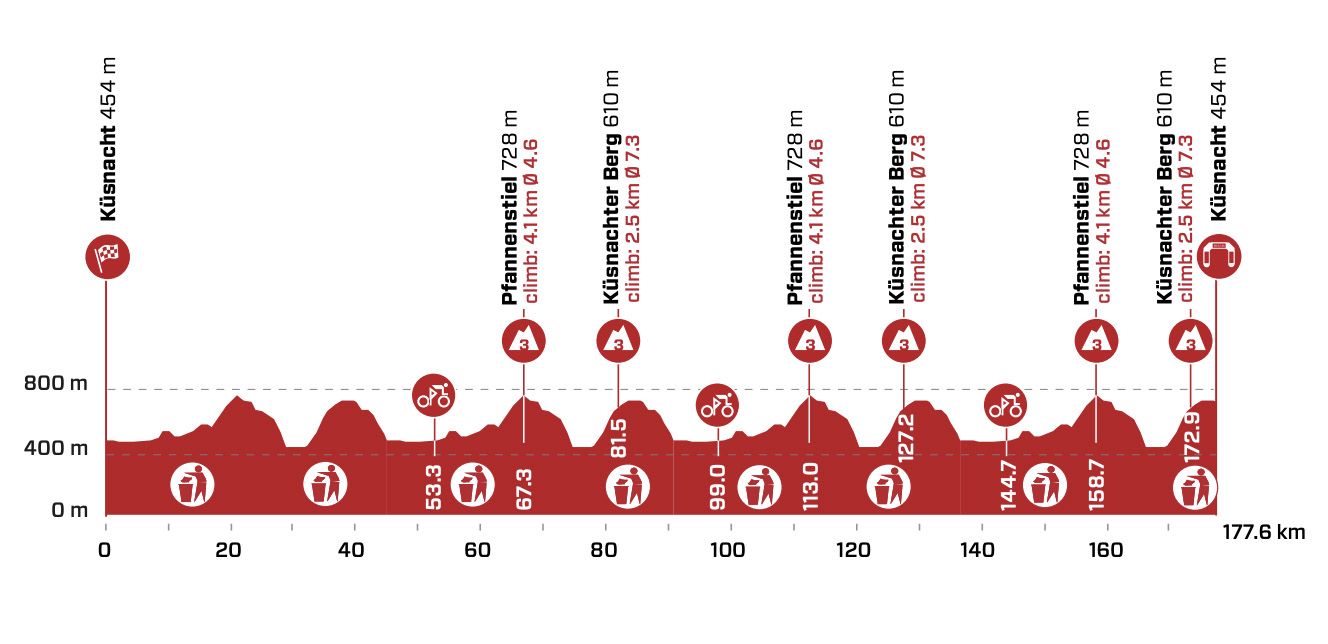
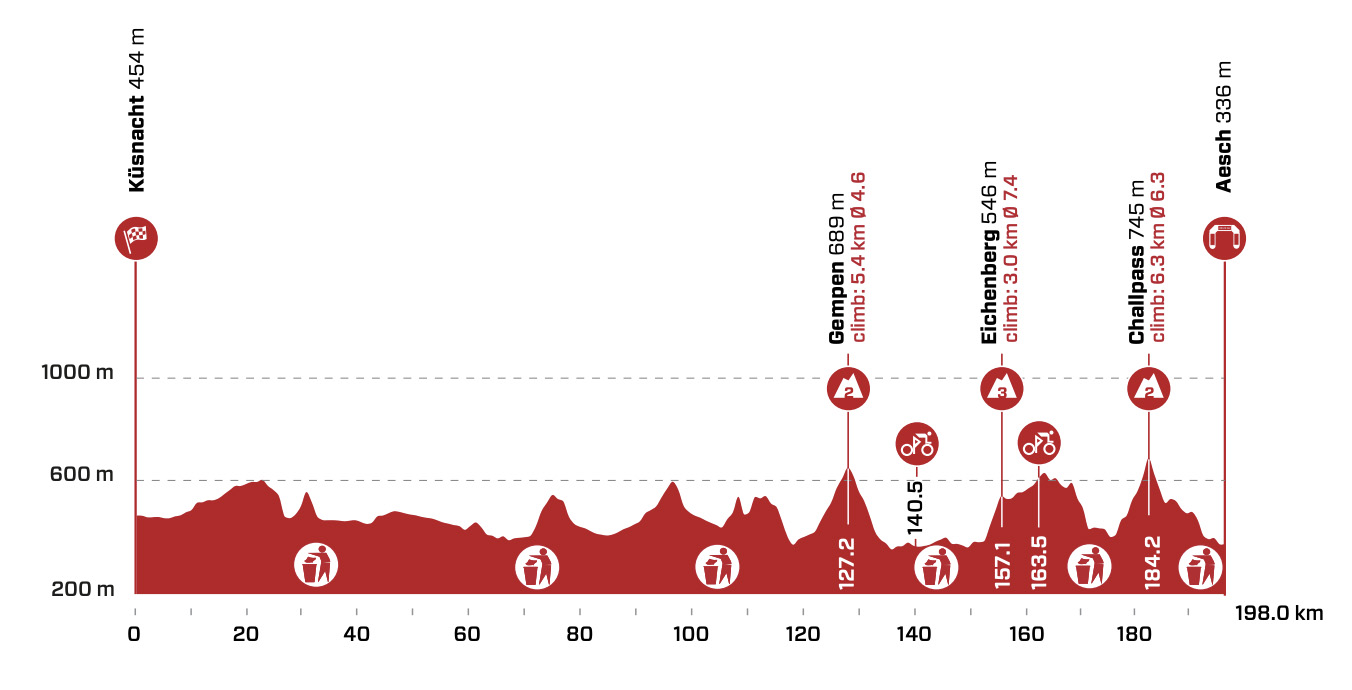
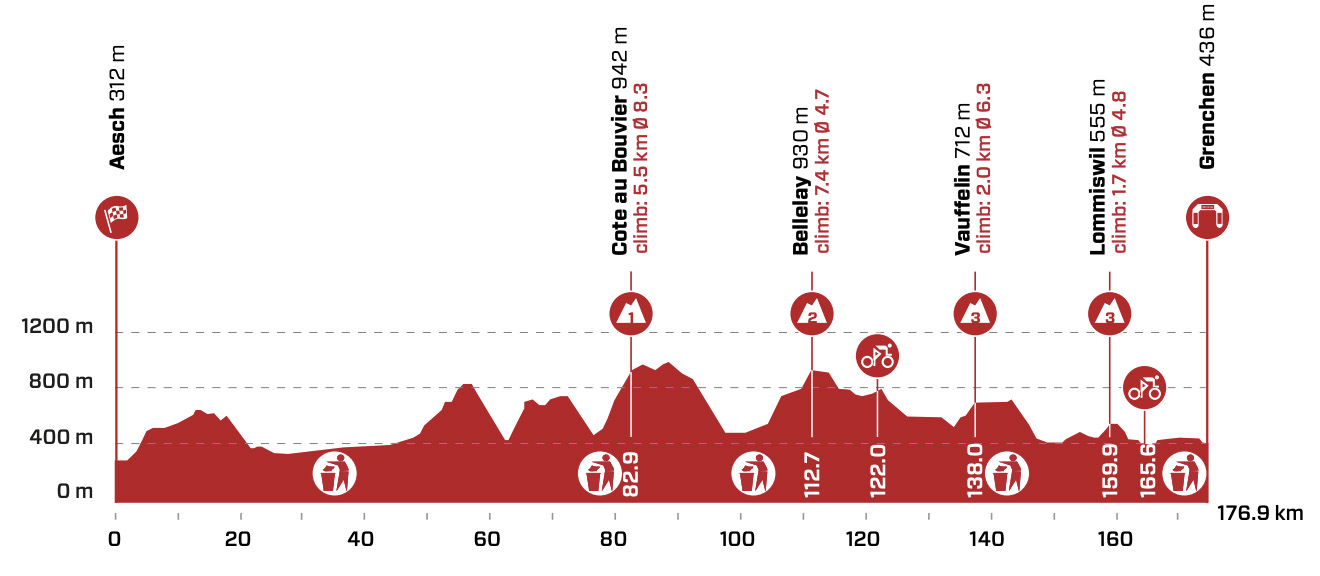
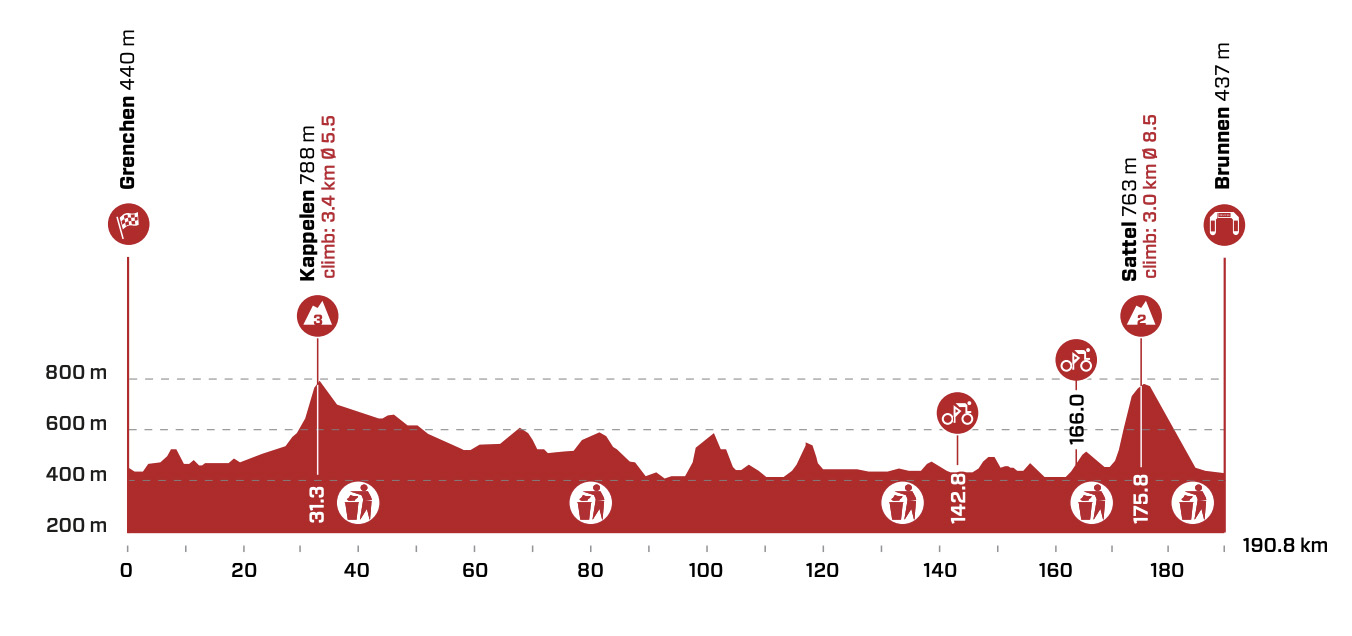

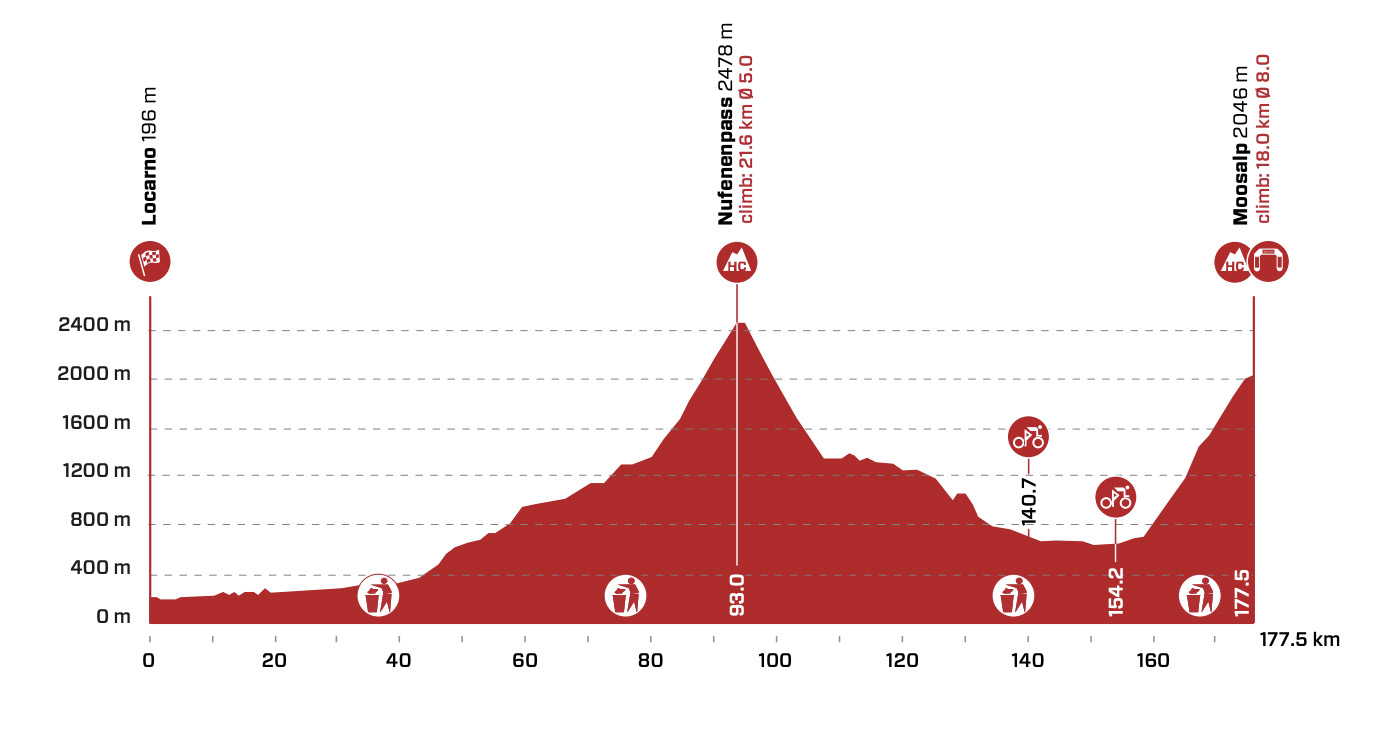
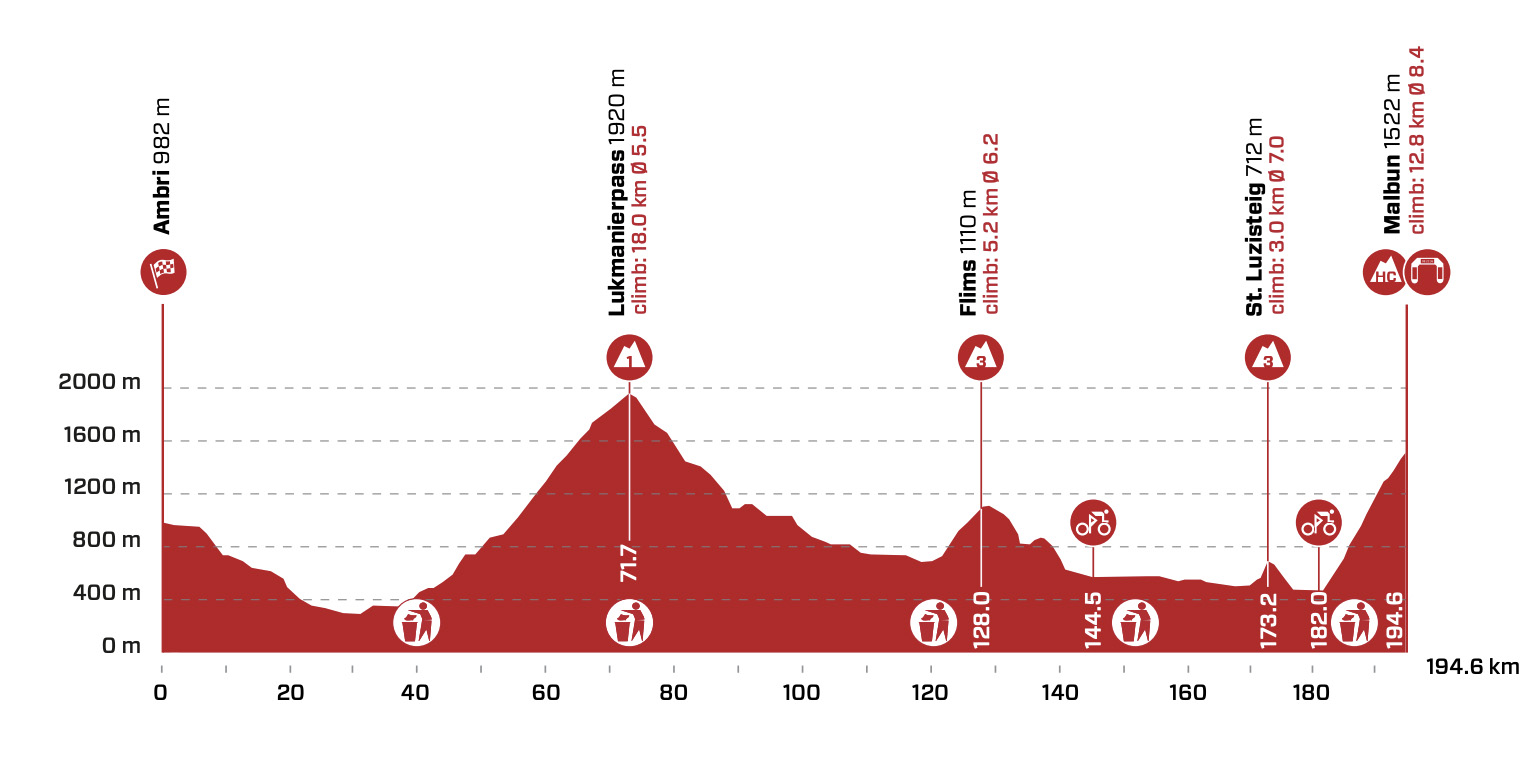
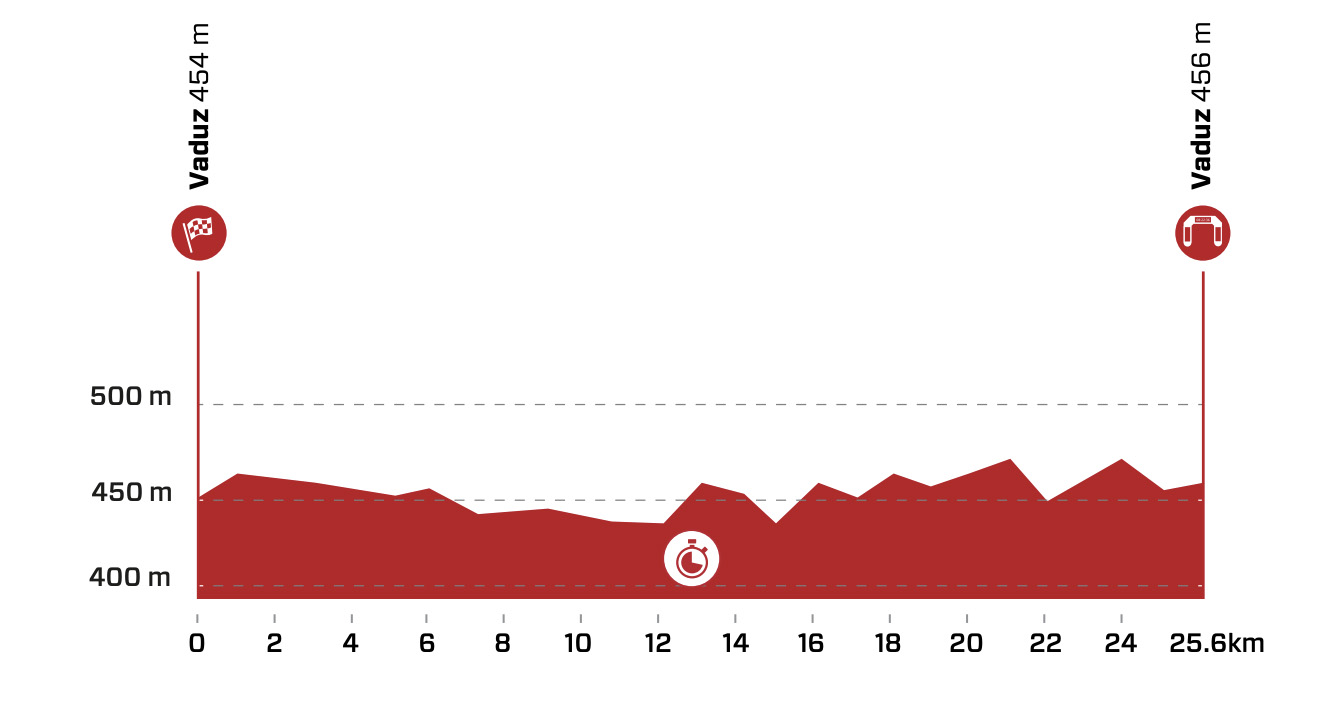
The 85th edition of the Tour de Suisse, June 12-19, 2022, begins in the Jura and central Switzerland in the first half of the race, and then crosses Ticino and Valais regions for the grand finale in Vaduz, Liechtenstein, a 26km race against the clock on stage 8. There are fewer Alpine passes than last year, but it is hard to distinguish as the race still divvies out plenty of climbing – a total of 18,407 metres over eight days.
The race begins with a circuit race on the shore of Lake Zurich in Küsnacht on Sunday, June 12. There are four laps for a total of 178km, which begins towards Greifensee, the Zurich Oberland and over the Pfannenstil then back to Küsnacht. On the final three loops the climbs at Pfannenstiel and Küsnachter Berg are category 3 and combine for six KOMs. There is a total of 2,810 metres of elevation gain on the opening day.
Stage 2 heads north and then west for 199km to Aesch with a similar amount of climbing from the day before, 2,806 metres.. The route goes over the Zurich Oberland and through the Canton of Aargau, taking in three categorised climbs in the final 75km including Challpass.
The first of the trio of KOMs is Gempen (5.4km at 4.6%), with 71.8km to go, followed 30km later by Eichenberg (3km at 7.4%), and then Challpass (6.3km at 6.3%). From the crest of Challpass there are less than 15km to the finish, set among the many castles and fortresses in Aesch.
It’s a rollercoaster ride on Stage 3 with 177km in the Jura region, starting in Aesch and going south to Grenchen. There are four categorised climbs and a trio of other uphill grinds that total 3,143 metres of elevation gain. The first categorised climb is the cat 1 Cote au Bouvier, 5.5km at 8.3% gradient, takes the peloton into the far north-west corner of the Jura. Then 16km later it is onto the climb of Bellelay (7.4km at 4.7%). The final pair of climbs are less menacing - Vauffelin (2km at 6.3%) and Lommiswil (1.7km at 4.8%) - and provide launchpads for final attacks in those final 38km.
The fourth day is the flattest of the road stages, only 1,938 metres of climbing, and begins from near the Tissot Velodrome in Grenchen. The 191km course crosses the Cantons of Solothurn, Bern, Lucerne and Schwyz, and has a lap in the Mythen region, located between Lake Zurich and Lake Lucerne. The first KOM hits 27.9km from Gremchen at Kappelen (3.4km at 5.5%) and sets up the rolling terrain across the next 140km or so. The category 2 Sattel (3km at 8.5%) provides a launching pad to the day’s conclusion, just a fast 15km from the summit to the finish line in Brunnen on Lake Lucerne.
Stage 5 begins atop Ambri and opens with a valley descent to the south that continues for 193 kilometres to Novazzano, taking in 2,950 metres of climbing, most of that in the second half of the route. The first attacks are anticipated on the ascent to Monte Ceneri, a category 2 climb of 5.2km and 6% gradient that awaits 60km into the stage.
Then a flatter section of 20km at the base of the descent leads to a circuit, covered three times in the final 80km. The cat 3 climb of Pedrinata is the main obstacle on the circuits, as it kicks up with 8.2% average gradient on the 2.4km slopes. The finish is a sharp uphill in Novazzano taking in almost a kilometre on Via Indipendenza to the final 400 metres on Via Marcetto.


The mountains loom larger on stage 6, with the most elevation gain of the week, 4,208 metres. After the start in Locarno, the route proceeds north through the Leventina and the Val Bedretto.
One glance at the elevation profile and the mid-way point of the stage is clearly punctuated by the hors categorie ascent to the Nufenen Pass, the highest road pass in Switzerland at 2,478 metres. The climb is 21.6 kilometres in length and provides an average 5% gradient. The long descent through the Upper Valais sets up the mountaintop finish to Moosalp, another long rise of 18km with a gradient of 8%.
Saturday’s stage makes it a doubleheader of big mountains, this one taking the peloton across 196 kilometres with 3,190 metres of elevation gain from Ambri to the ski resort in Malbun, Liechtenstein.
The first of four categorised climbs is the Lukmanier Pass, the 18km climb with 5.5% average gradient starting just 53.7km into the stage. It takes 18km to crest the monster, then a lumpy descent leads to the cat 3 Flims climb (5.2km at 6.2%). 45km later is the 3km climb of St. Luzisteig (7%) that provides a launchpad for the HC mountaintop finish at Malbun, 12.8km at 8.4%.
The final day is a 25.6km time trial on flat terrain in the capital of Liechtenstein. There are a few rolling sections, but only 140 metres of elevation gain on a loop course that follows a section of the Rhine River.
Get The Leadout Newsletter
The latest race content, interviews, features, reviews and expert buying guides, direct to your inbox!
Cyclingnews is the world's leader in English-language coverage of professional cycling. Started in 1995 by University of Newcastle professor Bill Mitchell, the site was one of the first to provide breaking news and results over the internet in English. The site was purchased by Knapp Communications in 1999, and owner Gerard Knapp built it into the definitive voice of pro cycling. Since then, major publishing house Future PLC has owned the site and expanded it to include top features, news, results, photos and tech reporting. The site continues to be the most comprehensive and authoritative English voice in professional cycling.
Latest on Cyclingnews
-
The highs and lows of Paris-Roubaix: Rory Townsend makes the break for Q36.5 as Joey Pidcock rolls in last
Doug Ryder's squad experienced all the emotions at the Hell of the North -
Fred Wright overcomes Shimano Di2 crash mode, avoids late wrong turn to grab Paris-Roubaix top 10
Briton says his next goal will be 'working out how to not be the best of the rest' after career-best finish -
'I felt good after Arenberg but the lights just went out' - Josh Tarling hit by eating problem at Paris-Roubaix
Ineos Grenadiers forced to chase from first sector of cobbles, after Filippo Ganna's mechanical issue -
'For sure, he'll be back' – Mathieu van der Poel expects Tadej Pogačar to return to fight for Paris-Roubaix win
Dutchman battles through broken radio and power meter as well as a late puncture to solo to third Roubaix win in a row
